It’s graduation season here for Boston and Cambridge’s many universities, and this seems like a good opportunity to address educational content: content with little to no overt promotional agenda, generated by vendors to benefit their audiences.
Often when we’re assessing our clients’ content needs, they rank educational content as ‘nice to have’ but not essential – it’s sometimes glibly regarded as “marketing philanthropy” that doesn’t drive near-term revenue. The shorthand argument for deprioritizing educational content usually follows this theme: “Our customers already understand the technology, so why bother.”
For their core customer base, this may be absolutely true. But it’s an approach that excludes some important audiences:
- Your customers’ bosses who make the purchasing decisions and write the checks….IF they can be convinced to invest in innovative but hard-to-understand technology
- Mainstream media editors inclined to write about a hot market trend, but don’t fully understand the technology or your company’s innovation within it
- Investors who understand the market opportunity in broad strokes, but don’t fully understand the technology that underpins it
- System designers in vertical markets trying to fully understand how any given new technology might be put to good use for their specific application
- Engineering students (read: tomorrow’s customers) looking for valuable real-world design advice that’s not weighed down with distracting, self-serving promotional content
And the list goes on. So there’s significant value that can be mined from producing educational content, even if it doesn’t necessarily translate into an immediate sale.
What do all of these audiences have in common? One, they’re humans, and humans generally respond to acts of goodwill. We appreciate help/education – even more so when its offered gratis – and we’ll remember who provided it. But this isn’t just a reputational ploy. The aforementioned audiences – in time – can help marshal real, substantial money in your business’s direction.
The other thing these audiences have in common is that they’re all using search engines to cherry pick this helpful educational content from ‘page one’ search results. Vendors second-guessing the value of educational content are ceding this real estate to their competitors, who can then proceed to own these search terms if not challenged.
Language & Lexicon
Natural phrasing – that is, phrasing a search query the way you would say/ask it out loud – is always an important element to consider when developing and optimizing content for search. But it’s even more pronounced in educational contexts, where searches are often inputted as:
“what’s the difference between X and Y”
“pros and cons of X”
“X vs Y”
“X 101”
By owning these search terms, you can arc the reader’s learning curve from the very outset of their technology journey. And it’s a clever way to bypass the hot competition for shorter tail keywords by leveraging search providers’ ability to weigh syntax and sentiment in addition to the keyword itself when outputting search results.
At the risk of getting too Orwellian – the guy knew a thing or two about propaganda – there’s an even deeper value to be gained for purveyors of educational content in bleeding edge, truly revolutionary technology domains (artificial intelligence, for example), where the language and nomenclature used to describe the technology isn’t fully developed and/or widely agreed upon.
In these instances, that handy online glossary that you provided to readers at the technology’s genesis could literally shape the lexicon of your industry for years to come – online and in real life.
When you literally write the dictionary, you command the storyline. Just always remember the old maxim: “With great power comes great responsibility.”
Who was it who said that? That’s a great question, let’s find out…
[P.S. I always assumed it was Spiderman, but apparently it might have been Voltaire. It’s easy to get them confused].





